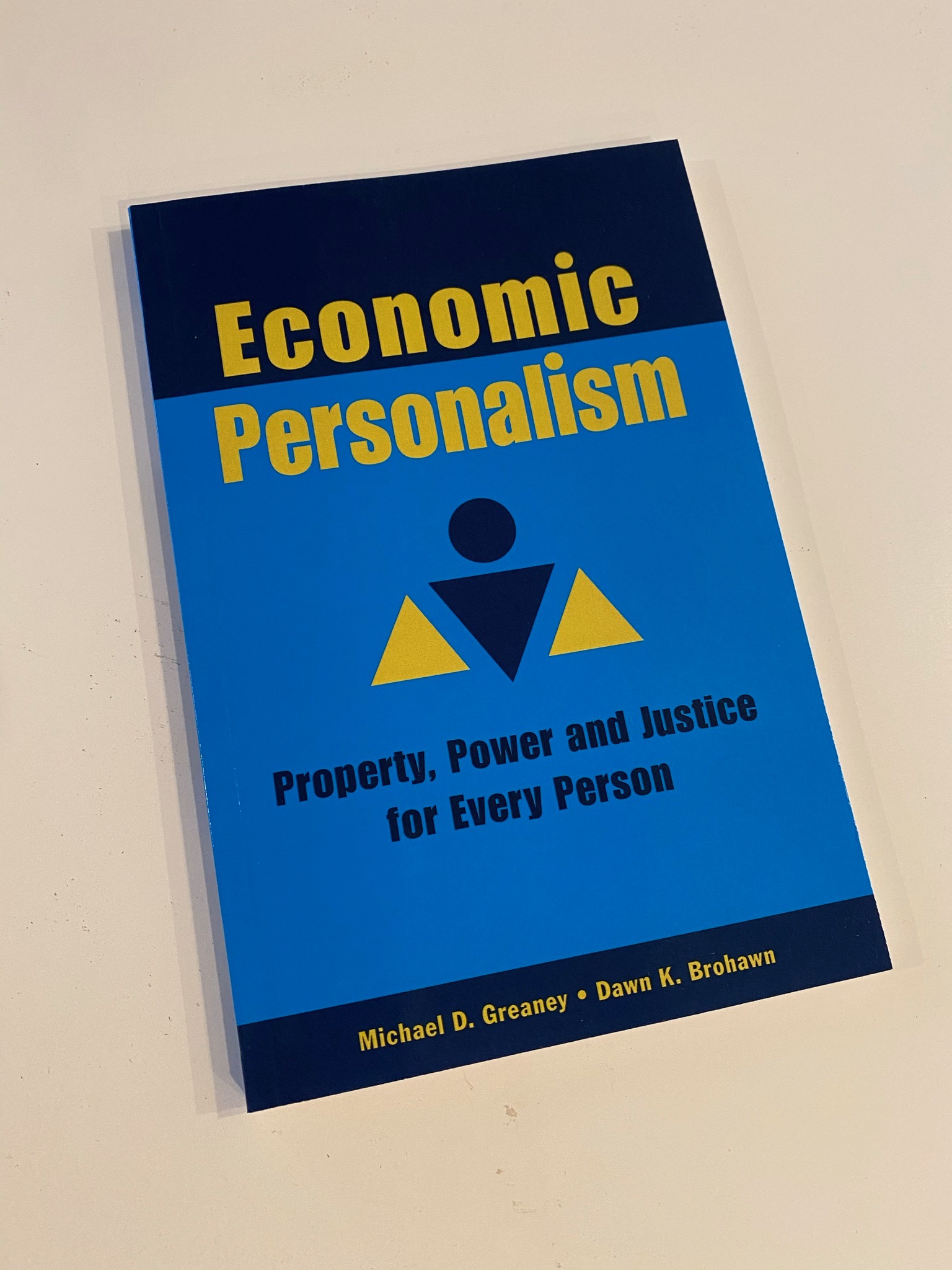By Michael D. Greaney and Dawn K. Brohawn
As we witness the current crisis and the chaos throughout society, we must ask, are capitalism and socialism our only options for the economies of the future? Are wages and welfare the only way most people will be able to gain adequate and secure incomes? Does either individualism or collectivism allow people to live in a manner befitting the demands of human dignity?
Or is there another way, a just third way, that transcends the greed of capitalism and the envy of socialism, frees people from the wage and welfare system, and assists them in realizing their fullest human potential?
In Economic Personalism: Property, Power and Justice for Every Person, the interfaith Center for Economic and Social Justice (CESJ) examines the natural law principles that help guide human behavior. CESJ applies them, presenting a possible framework for solving social, political, and economic problems in a way that can potentially benefit everyone instead of limiting advantages to a tiny private élite or to those who control the State or collective. Although intended primarily to explain fundamentals of the Just Third Way of Economic Personalism to Catholic clergy, academics, and intellectuals, this short book is a valuable resource for people of all faiths and philosophies who are seeking ethical and practical ways of dealing with a world that stumbles from crisis to crisis without a consistent or even coherent goal.
It is a sad fact that for two centuries or more the human person has become increasingly powerless and alienated from Church, State, and Family. The rerum novarum — “new things” — that arose in an effort to solve the problem only made matters worse, confusing the meanings of key terms and concepts, especially “social justice.” Does social justice mean that everyone has a right to receive from others what he or she needs to live a decent material life? Or, applied in the principles of economic justice, does it mean that everyone has a right to the equal opportunity and equal access to the means to provide one and one’s dependents with what is needed to live a decent material life and become virtuous?
In light of the chaos that characterizes society today, the principles of economic personalism offer a new paradigm for addressing social problems, particularly (of course) in the field of economics. As Economic Personalism makes clear, the socially just approach to economic imbalances that disrupt the social order is to open up access to money and credit so people can be productive with both labor and capital and create their own wealth through their own efforts, both individually and in free association with others.
Economic Personalism reveals the common thread within the breakthroughs of Pope Pius XI, Pope John Paul II, Louis O. Kelso, Mortimer J. Adler, and other great thinkers in philosophy, economics, law, finance, and other fields. It explains how the focus on the dignity and empowerment of each human person would transcend today’s failed social, political, and economic paradigms, and reveal systemic solutions to systemic problems, including global poverty, racism and war.
The book closes with a request that Pope Francis, as head of a Church that spans the globe, examine the case for economic personalism and the principles of economic justice, and issue an encyclical to guide people of every faith and philosophy and their leaders in building a more just, prosperous, and hopeful future for all.
Economic Personalism: Property, Power and Justice for Every Person, by Michael D. Greaney and Dawn K. Brohawn. Arlington, Virginia: Justice University Press, 2020, ISBN 978-0-944997-13-0, 152 pages, $10.00. Print copy available from Amazon.com and BarnesandNoble.com. Free PDF download at www.cesj.org/economic-personalism-book.
